How To Integrate Wellness in Your Coworking Space? The Example of Oru Space
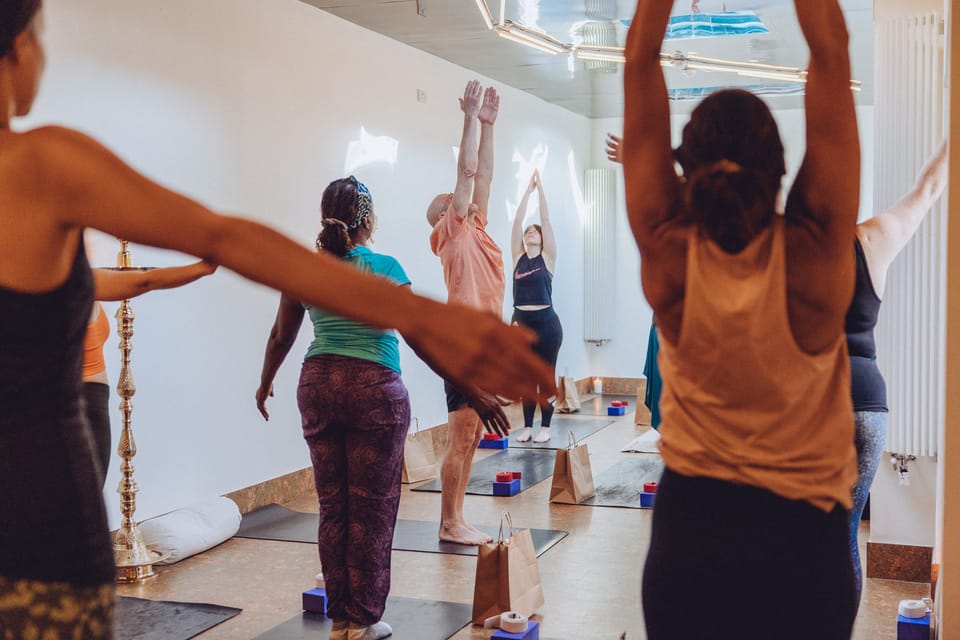
As September approaches, we’ve been reflecting on what topic could help us transition smoothly from the relaxed pace of summer into the final chapter of 2024. What conversation could set the tone for a successful and balanced end to the year? The answer was clear: wellness and well-being in coworking spaces. Why? Because, in the wake of the pandemic, the way we work has been fundamentally questioned, and many of the challenges brought to the workplace by COVID-19 remain unresolved.
At the heart of these discussions is the desire to bring more happiness, work-life balance, and mindfulness into our daily routines. One significant change has been the reduced need for commuting (by offering more flexible work arrangements)—easing the stress of morning chaos, avoiding the frustration of strikes, congestion, and delays, and simply allowing for a more peaceful start to the day. Just thinking about the old routine feels stressful, doesn’t it?
Part of the solution to today’s workplace challenges lies in two key concepts: wellness and well-being. Around the world, certain coworking spaces have been at the forefront of this movement. They’ve created flexible work environments that prioritize the wellness and well-being of their members and teams, embedding these values into every aspect of their operations.
So, what can we learn from these pioneers? How can we collectively focus more on the wellness and well-being of the people within our communities? Over the next four weeks, we’ll dive into four case studies from coworking spaces that have made wellness and well-being their mission. Together, we’ll journey to London, Vancouver, Amsterdam, and back to London to meet individuals who are championing these values, whether by developing coworking spaces or designing products and services that support greater wellness and well-being in the workplace.
Let’s get started.
🧘 Wellness and Well-Being in Coworking Spaces, What Are We Talking About?
😌 Case Study: How to Integrate Wellness in Your Coworking Space? The journey of Oru Space (London, UK)
🍀 To Go Further: More on Oru Space’s Fascinating Journey
🧘 Wellness and Well-Being in Coworking Spaces, What Are We Talking About?
As mentioned in the introduction, you're about to embark on a 4-week journey exploring wellness and well-being in coworking spaces.
Our goal with these case studies is always to empower you with valuable insights. To achieve that, it’s crucial to start with a clear understanding of the basics. Why is this important? Because many people often use the terms wellness and well-being interchangeably, when in fact, they are distinct concepts.
To kick off this exploration series, let’s begin by (re)defining what wellness and well-being truly mean in the context of coworking spaces.
WELLNESS
Wellness in coworking spaces refers to the comprehensive approach that coworking operators take to foster the overall well-being of their members and their teams. This approach involves promoting physical, mental, emotional, and social health through a supportive and inclusive environment that balances work demands with the flexibility and autonomy that coworking spaces are known for. The goal is to create a thriving community where members can achieve personal and professional growth, satisfaction, and productivity.
❌ Quick Fixes: It is not about providing superficial amenities like free coffee or a gym membership without considering the deeper needs of the coworking community, such as creating opportunities for meaningful interaction and stress management.
❌ One-Size-Fits-All: Wellness in coworking spaces does not assume that the same resources or events will suit everyone. It requires offering a variety of wellness options tailored to the diverse backgrounds and work styles of members.
❌ Just Physical Health: It is not limited to physical health initiatives. It also includes fostering mental well-being, offering spaces for quiet work or relaxation, and building a positive, collaborative community culture.
✅ Holistic Support: Wellness in coworking spaces includes access to physical, mental, and emotional health resources, such as wellness workshops, mental health services, ergonomic workstations, and flexible workspace arrangements.
✅ Inclusive Community: It involves creating a coworking environment where every member feels welcomed, supported, and encouraged to connect with others, promoting collaboration and a strong sense of community.
✅ Work-Life Balance: Prioritizing work-life balance by offering flexible membership options, quiet areas for focus, and social events that help members manage their personal and professional lives while enjoying a balanced lifestyle.
WELL-BEING
Well-being in coworking spaces refers to the overall health, happiness, and satisfaction of members within the coworking environment. It involves creating a space where the demands of work are balanced with the resources and flexibility that the coworking model provides, ensuring that members feel supported, valued, and motivated.
Well-being in this context includes the physical comfort of the workspace, mental resilience, emotional support, and the sense of community and fulfillment that comes from being part of a coworking space. The aim is to enable members to thrive, both professionally and personally, while contributing to the success of the coworking community.
❌ A Perk or Benefit Alone: It is not just about offering perks like high-speed internet or networking events without addressing the deeper needs of members, such as creating a supportive environment for mental health or ensuring ergonomic workstations.
❌ Ignoring Individual Needs: Well-being in coworking spaces is not about applying the same approach to every member; it requires recognizing and catering to the diverse needs, work styles, and preferences of the community.
❌ Short-Term Initiatives: It is not about implementing one-off events or temporary solutions that don’t lead to lasting improvements. Well-being in coworking spaces requires ongoing efforts to continuously enhance the member experience.
✅ Comprehensive Health Support: Well-being in coworking spaces includes addressing all aspects of health—physical, mental, emotional, and social—by offering resources like mindfulness sessions, ergonomic furniture, mental health support, and opportunities for social interaction.
✅ Member-Centric Culture: It is about cultivating a culture where members feel respected, valued, and empowered to collaborate and grow, creating a strong sense of community and belonging within the coworking space.
✅ Sustainable Work Practices: Well-being in coworking spaces promotes sustainable practices such as flexible hours, a variety of workspace options to suit different tasks, and opportunities for continuous learning and professional development.
With both concepts now clearly defined, let's start our learning journey and head to London, where we'll discover a space that goes beyond ‘traditional’ coworking. This multi-purpose space is dedicated to the wellness and well-being of its local community, offering a range of services designed to support their holistic health.
😌 Case Study: How to Integrate Wellness in Your Coworking Space? The journey of Oru Space.
The positive impact of coworking spaces on people and cities has been the guiding light of Coworkies’ journey. Over the past nine years, we've explored, learned, and shared stories about how coworking spaces are transforming lives and reshaping urban landscapes by creating opportunities that previously didn’t exist.
The space you’re about to discover exemplifies this transformation. Oru Space, launched in 2020, just 8 days before the pandemic began, is based in London—a city renowned as the global hub for coworking and flexible workspaces. However, rather than establishing itself in the bustling heart of the city where many coworking brands reside, Oru Space chose Dulwich, a neighborhood in South London just below Brixton.
Dulwich is often described as the closest you can get to a true village within London, known for its boutique independent stores, beautiful homes, and lush green spaces. Having visited, we can attest that this description is spot-on.
Now that you’re acquainted with both Oru Space and its charming neighborhood, what’s even more compelling is how Oru Space has impacted its surroundings. Once a community mental health unit under the NHS, the space has been transformed into a beautiful environment where wellness and well-being are central to everything they offer—not just for their members, but for the entire Dulwich community.
Curious to learn how they’ve achieved this? Keep reading.
Oru Space ‘ID Card’
Location: London, United Kingdom
Q: Why did you start Oru Space?
“ I think the main driver was a mix of frustration and disappointment with the companies we'd worked for before, particularly in how they served—or failed to serve—the community. A huge motivation for us was the desire to create something purposeful, something we, like many others, deeply seek. [...] We wanted to create a hub that brought those purposeful elements together. We didn’t know exactly how it would look or feel, but we had a shared passion.”
Vibushan Thirukumar, Co-Founder and CEO of Oru Space
Number of spaces today: 2
Sneak peek at Oru Space ⬇️
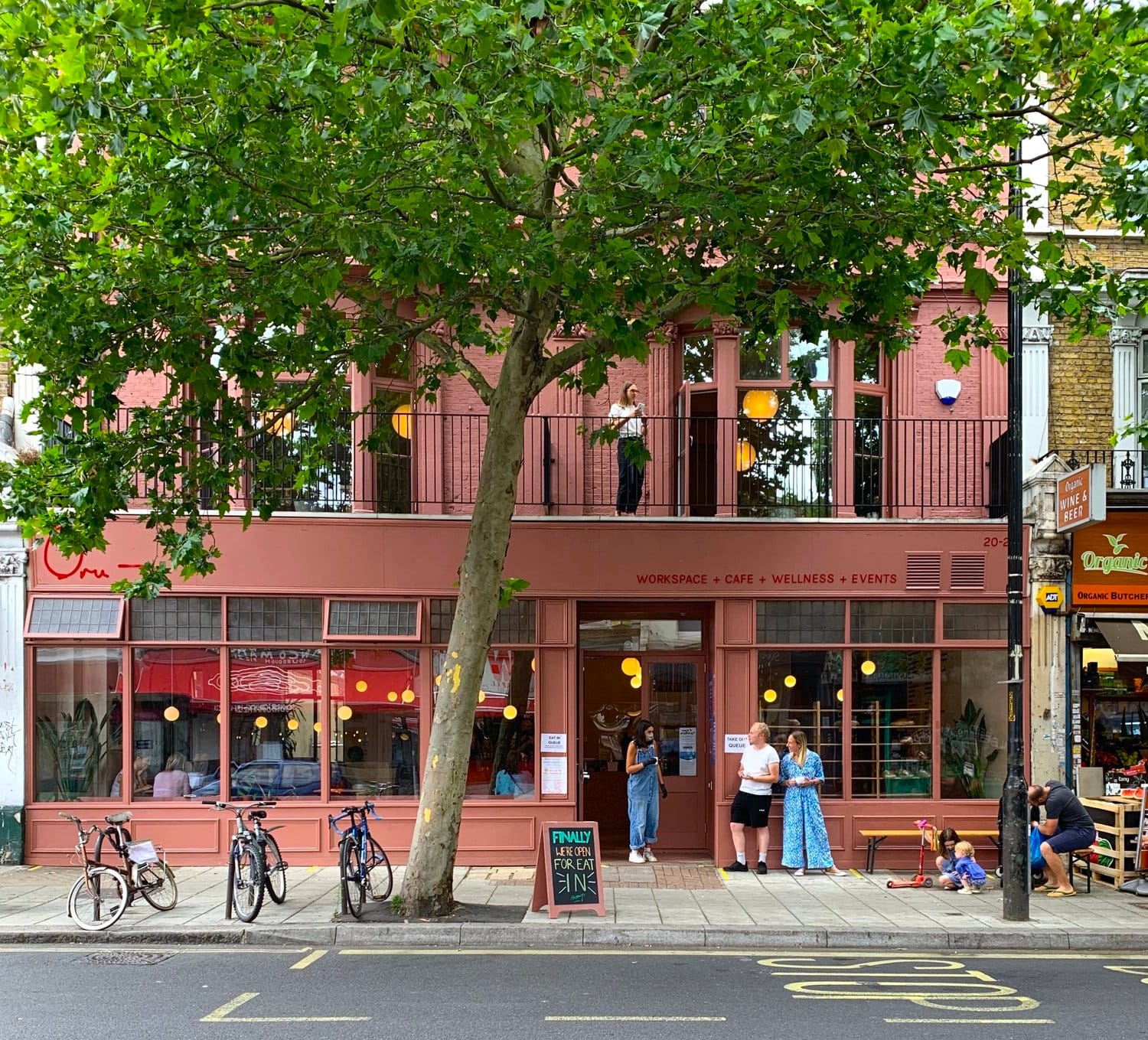
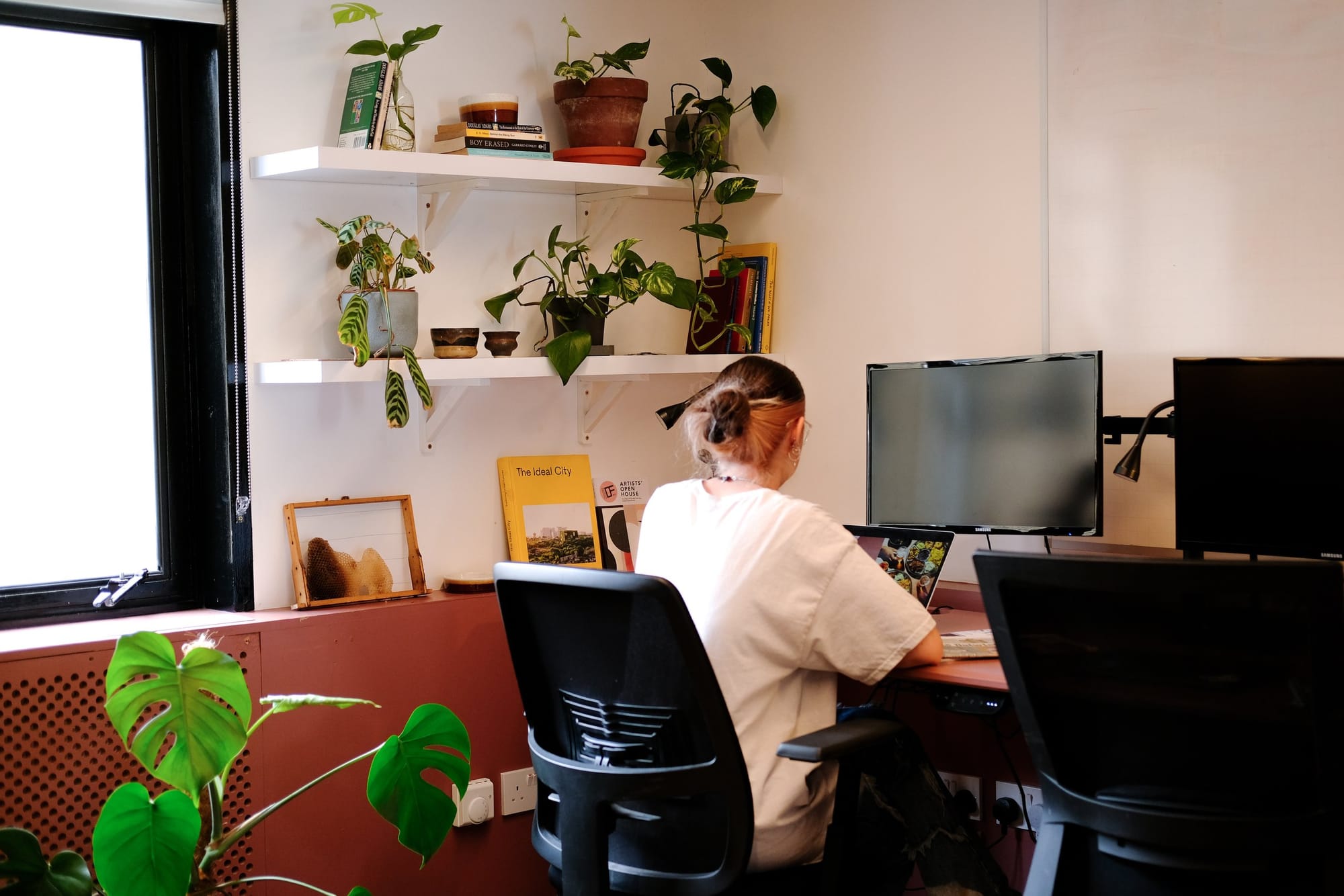
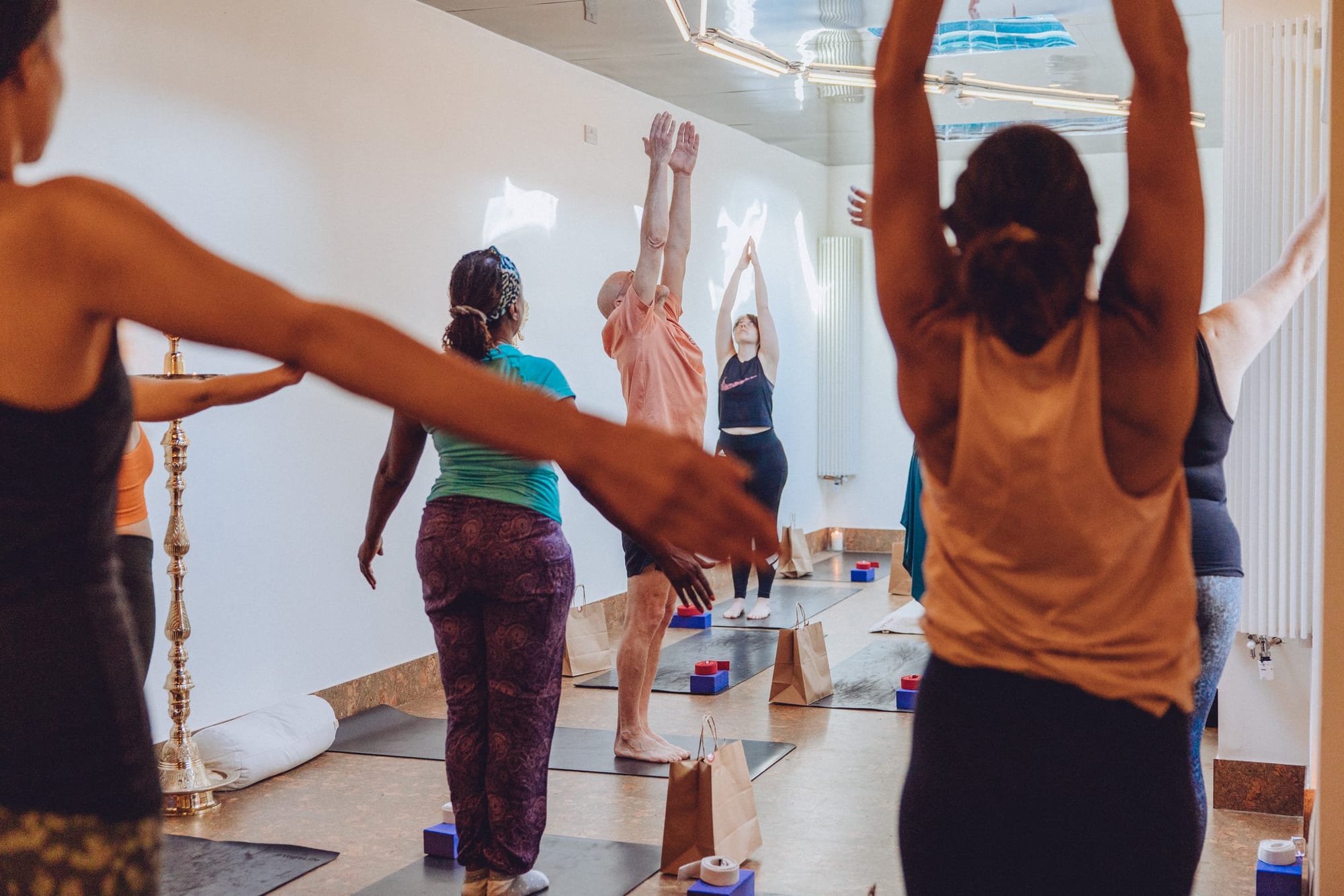
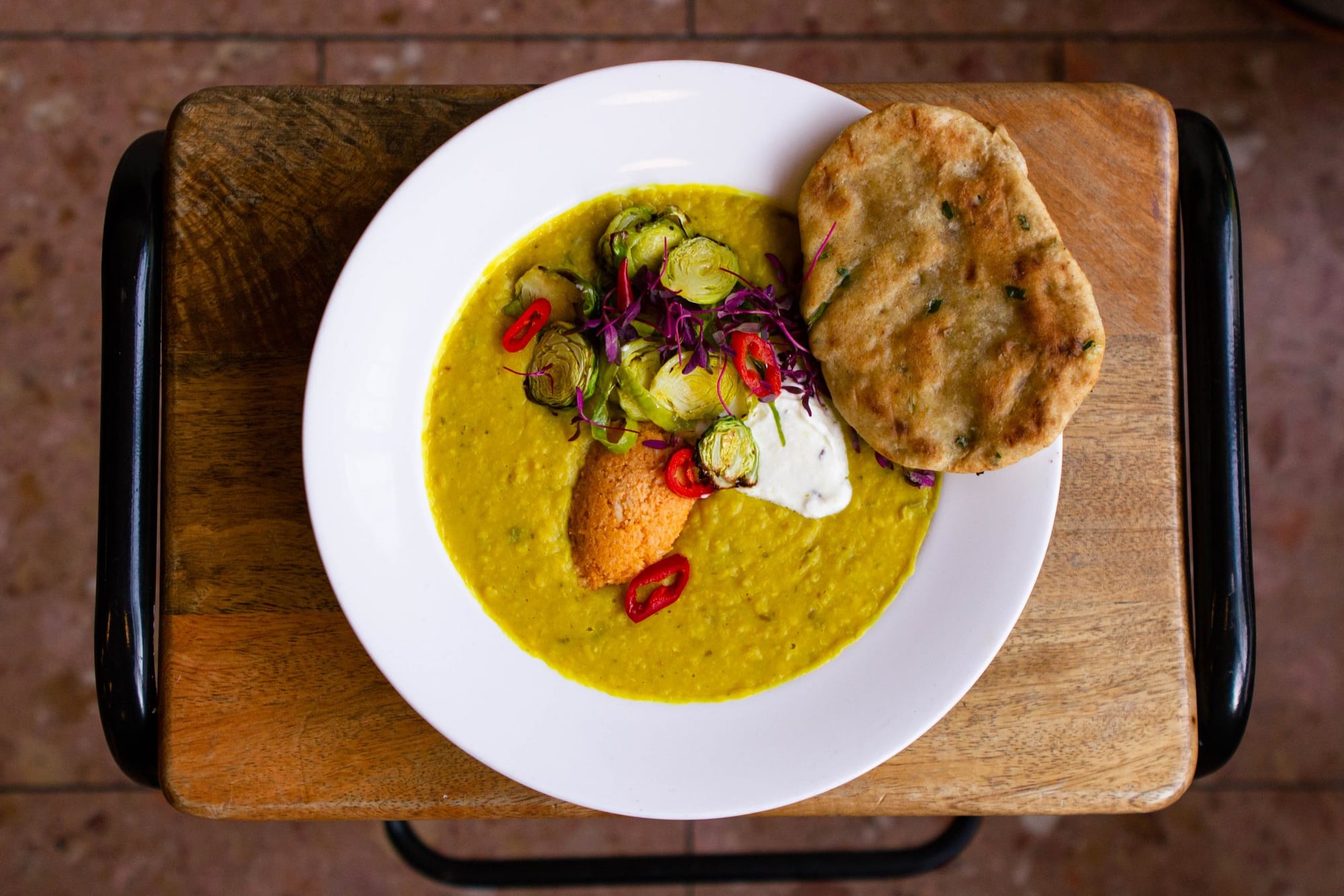
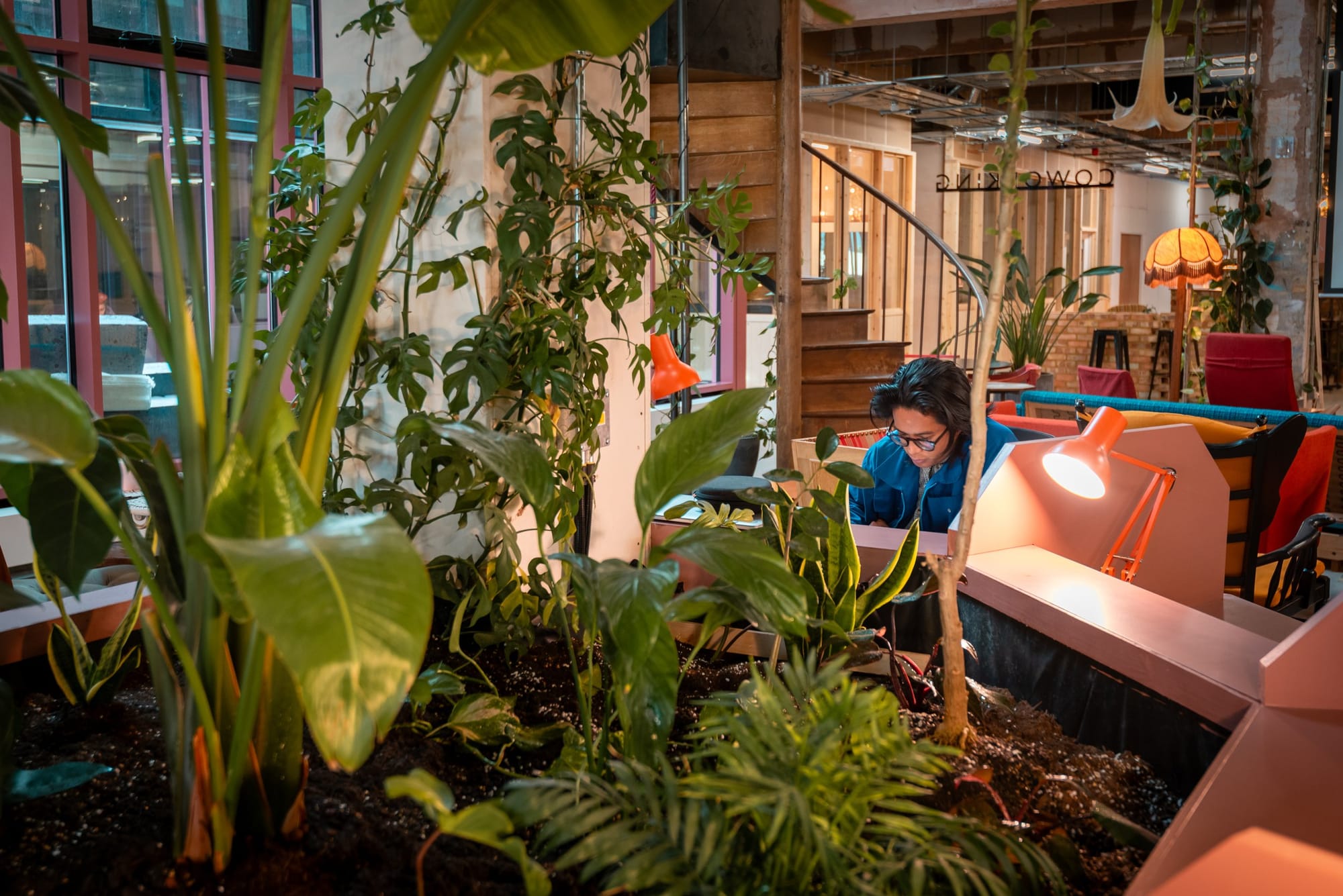
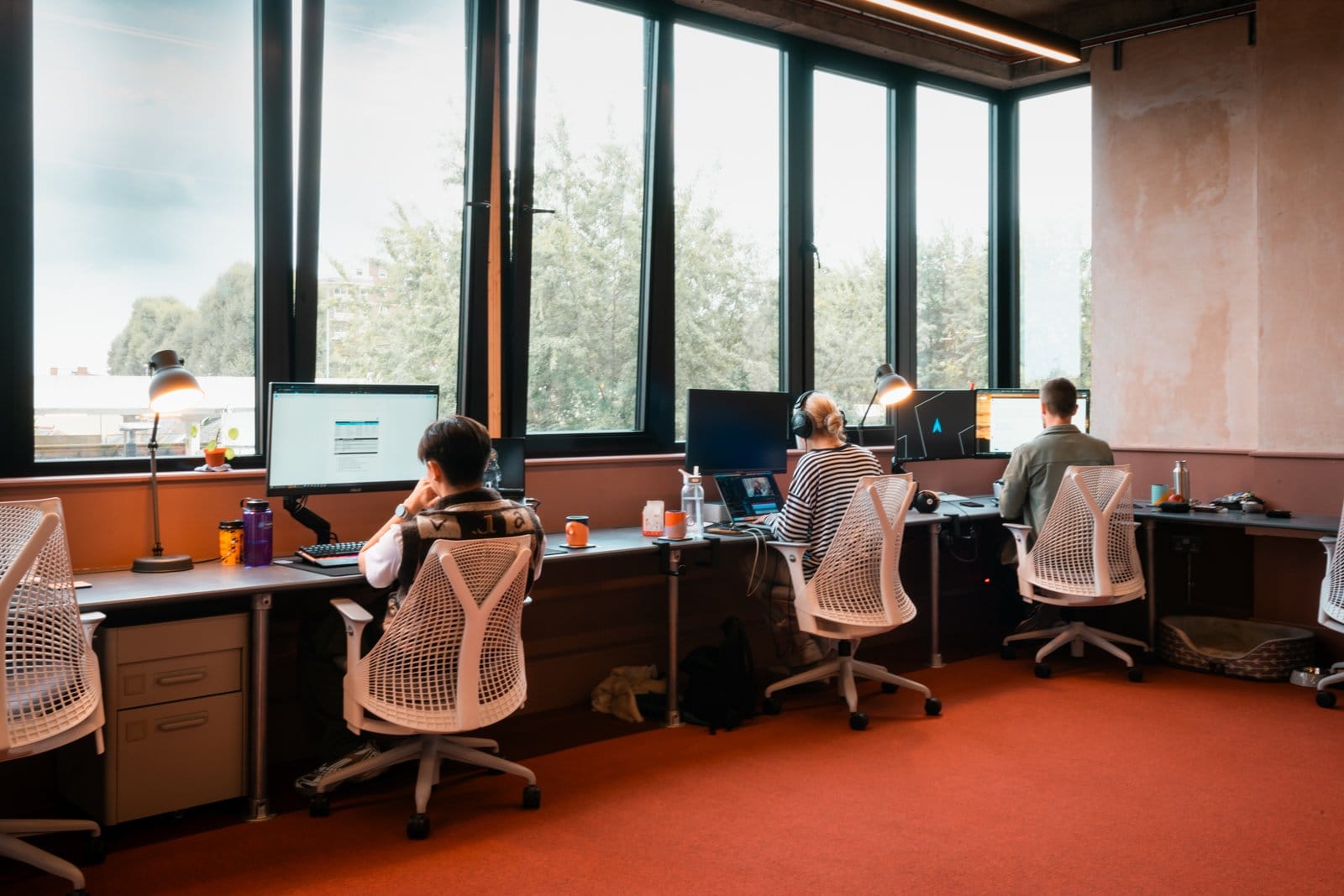
Images Credits: Oru Space
Oru Space and Wellness: A Case Study
1️⃣ The Why
At the core of Oru Space is their ‘why’.
Why do they exist? The answer is in their name ‘Oru’, which means ‘For One’ in Tamil.
“Community is at the heart of everything we do. Whether it’s through coworking, hospitality, or well-being, we believe bringing people together and supporting one another creates change - an interconnected foundation from which social impact can flourish. Purpose-driven and people-centered, we currently have many social initiatives unfolding that support the local community.”
2️⃣ The Implementation
How do you design a space where community in its entirety is celebrated and welcomed? Oru Space has designed its mission around 4 key pillars that the physical space serves and empowers:
➡️Opportunity
➡️Sustainability
➡️Biodiversity
➡️Accessibility
3️⃣ Growing with Wellness
As you are about to discover, wellness and well-being are in every pillar of the brand. Whether through the space design, its offering, or its hospitality-driven approach, everything at Oru Space is made for people interacting with the brand and the space to feel good, supported, seen, and healthy.
How To Implement Wellness In Your Coworking Space? A conversation with Vibushan Thirukumar, Co-Founder and CEO of Oru Space.
{Slightly edited for an improved reading experience)
🎤 Can I ask you to introduce yourself?
My name is Vibushan. I am the co-founder and CEO of Oru Space. Oru has been in existence for two and a half years now, and we started eight days before the pandemic began.
None of it has been easy, but it's been a wonderful and rewarding process. We've got a thriving building in Dulwich (South London), and we're building, developing, and operating our new site in Sutton. I struggle to call us a coworking space because almost 40% of our building is dedicated to hospitality, events, and well-being. We're all of those three things, which is both wonderful and complex.
🎤 Why did you and Paul (your Co-founder) decide to start Oru Space?
I honestly struggle with this question. I think the main driver was a mix of frustration and disappointment with the companies we'd worked for before, particularly in how they served—or failed to serve—the community.
A huge motivation for us was the desire to create something purposeful, something we, like many others, deeply seek.
Yet, somehow, we often end up compromising on that, whether it’s where we work, what we eat, and drink, or how we stay active. We wanted to create a hub that brought those purposeful elements together. We didn’t know exactly how it would look or feel, but we had a shared passion. Despite being very different people, our similar values have been the cornerstone of our shared goal and vision.
🎤 Let’s dive right into the topic of wellness. How do you integrate wellness at Oru Space?
Of course. The reason wellness is such an integral part of our business is that we experienced its benefits firsthand while working at Second Home, a wonderful design-led workspace. Paul and I would practice meditation on Friday afternoons, and it became a crucial reset for us. We were working crazy hours, and going out at night, and that lifestyle just didn’t quite align with the demands of working hard. After just 20 minutes of meditation, we felt this huge weight lift off—it was transformative. That experience made us think: how can we take this further?
We decided to create two amazing rooms dedicated solely to wellness, designed to make it easy for the 250 people in our coworking space to access these classes. But we didn’t want to stop there; we wanted the public to benefit too. So, we offer wellness classes at a discounted rate for our members, with up to 10 classes a day to choose from. It’s become a thriving part of our business. We focus on making it as accessible as possible, with timing being key, and we listen to what our community needs.
Importantly, we also offer four free classes a week.
We believe it’s essential to let people experience Oru without any financial commitment.
For someone who’s never tried a class before, spending 15 pounds or more can be a big commitment. These free classes allow people to get familiar with what we offer, and we’re happy to absorb the cost because it’s worth it. Some people just come for the free classes, and that’s great—it provides them with huge help. We love meeting and talking to them, and it’s really rewarding to see the positive impact it has.
🎤 What I also love about Oru Space is that you made food an integral component of the overall space story. Why did you want to have food within the whole concept?
I think the food element came from my family background. I'm Sri Lankan by origin, and for us, eating out was a significant financial commitment. Often, when we did eat out, it led to disappointment. We didn’t always know where to go, and when we did, the food often didn’t meet our standards. I’m very blessed to have a family, especially a mum, who can cook healthy, tasty food that's Sri Lankan-influenced if not entirely Sri Lankan. I saw this as an opportunity to ask, "Can we do this?"
Paul, being a strict vegetarian—mostly vegan—was very clear that he wanted the food to be interesting and plant-based. I fully respected that and wanted to adopt it as well. We approached five to six restaurant and café operators to run it for us, or in partnership with us, and we insisted that the food be tasty, healthy, vegetarian, and vegan. However, we’re in Dulwich, and almost all of them laughed at us—they had no interest in running it for us. So, we were left with no choice but to run it ourselves, and we’re incredibly grateful that it turned out that way.
Now, we have five to six hundred people a day coming to our café. With 77 seats, it's always busy—it’s the hub of the building. If someone else were running it, I don't think it would be as successful.
We have chefs who are developing the menu every day. There’s something new on the menu almost every week. We have eight chefs now, and they’re incredible—not to mention, very nice people.
🎤 Speaking of the team, it's a perfect segue to my next question because you've built a very impressive team of wellness experts around Oru Space. What kind of topics do they cover?
That's something I should have mentioned at the start. I'm not a wellness expert at all, but our wellness team is doing an incredible job. We have a brilliant Head of Wellness, Amelia, and a fantastic team—Chloe, Dom, Alex—who all support our approach to wellness. They're the ones doing all the heavy lifting: curating classes, vetting teachers, improving the offerings, and ensuring the space is of the highest quality. We run about 15 different types of classes, offering a wide variety to cater to different needs. The classes vary in length and are held at different times of day, so it's a lot of work to manage these two wellness studios.
🎤 What I also really appreciate about Oru Space is that you provide a place where people can learn about wellness. While browsing your website, I noticed that you organize quite a few workshops. Can you talk about those and why you decided to include this educational component?
Yes, I believe a class is about regularity—it's about getting in, getting what you need, and leaving. A workshop, however, goes far beyond that. It's an opportunity to dive deep into a specific aspect of wellness.
For example, I attended a breathwork workshop last evening led by a gentleman named Stephen Evans. It was an incredible experience, and it lasted two hours. Those two hours give you the time to get familiar with the space and the people you're sharing it with, creating a stronger sense of community. A workshop allows for more in-depth exploration, going beyond what a shorter class can offer.
🎤 I appreciate that you mentioned earlier that you're not a wellness expert. It emphasizes how anyone interested in integrating wellness and well-being into their coworking space can do it. How is your community responding to the wellness programs they have access to?
I think the response has been really positive overall. But I won’t pretend it’s been all smooth sailing. When we decided to split one wellness studio into two, the initial reaction was quite negative. People were saying, "What are you doing? We loved that studio, we loved that location." So, it wasn't all great at first. However, I must say that now, the feedback is overwhelmingly positive. People appreciate our approach, the variety of classes, and the quality of the teaching.
We also prioritize making our offerings as accessible as possible. It's very important to us that people who might not fit the typical wellness class stereotype feel comfortable participating.
This is something I’ve personally struggled with—I’ve gone to yoga classes and not felt entirely comfortable, even in our own building. So, we’re constantly working on improving this aspect.
Currently, we have around 50 to 60 people with unlimited memberships, which I think is a good indicator that people love our brand and what we’re doing. I’m just really grateful to be able to provide something that people find valuable.
🎤 What are the hottest classes at the moment at Oru Space? What are people asking or showing up the most for?
Recently, we introduced a Hatha yoga class on Sunday, and it filled up on the very first day—completely full. When you launch a new class and it fills up immediately, there’s no greater feeling because it shows that the community has embraced it, they approve of the teachers, and it’s exciting to see a new trend take off.
For example, Mysore, which isn't very common, is extremely well-attended at Oru. It's actually the practice that I do. Mysore is a type of Ashtanga yoga, but it’s not a led class—you do it at your own pace. We have two amazing instructors, Tom Norrington and Emma Burton, who walk around the class, teaching you the next sequence as you progress. You go at your own speed, and there’s no music, so it’s a really unique experience. Everyone is focused on a different part of the sequence, and it’s wonderful to see. The class runs four days a week, and you can drop in at any time, which I think is really amazing.
🎤 You are currently in the process of opening a new space, could you tell us more about it? What will it offer when it’s fully operational?
(At the time of this article, the second space of Oru is opened and fully operational)
Yes, of course. So, we’re currently only 5% open, but the full space is 40,000 square feet—it's a very large building. There will be a nursery that can accommodate up to 40 children, a 200-person café restaurant, and a 200-person event space with tiered seating. We’ll also have space for 600 co-workers. But the most exciting part of this project is the wellness offerings. In addition to two amazing yoga studios like we have at Dulwich, we're going to have a spa that includes cold water therapies. This will take our wellness offerings far beyond what we currently have at Dulwich. The spa will be part of the packages and will include features like a cold water plunge. We’re excited about this, and we’re in the process of designing it now. We’re aiming to have everything completed in six months.
🎤 What has been your biggest learning out of bringing Oru Space to life?
The biggest learning… well, there have been so many. I think I’d say the same thing I mentioned the last time we talked, actually. When you're building something, you don't need to have all the answers at the start. It’s crucial to work with your team, your network, and your community to develop what they truly want and need. This means listening to yourself a little less and focusing less on your ideas of what the company should do, and instead, really tuning in to what the community needs.
🎤 My last question before I let you go is: If you could offer a piece of advice to operators watching our conversation and considering integrating wellness into their spaces, what would it be?
I’d say, as an entrepreneur and a small team leader, it can be very stressful. Wellness doesn't have to mean yoga studios and lycra. It can be about mindfulness, quiet areas, or spaces for relaxation. Providing something that helps people be more present is crucial. I know I’m often juggling multiple tasks, having too many meetings, and staying late at work, so creating an environment that encourages living in the moment can be incredibly valuable. That’s a great place to start. Then, you can explore what’s the easiest or most financially viable way to make that happen.
🍀 To Go Further: Discover More of Oru Space’s Fascinating Journey
If you are curious to learn more about the transition of their first building, from an NHS building for mental health to what Oru Space is today, watch this great interview of Vibushan and Chloe with the Property X-Change community.

Oru Space has big plans for the future. Discover what Vibushan, Paul, and their teams have planned and become active contributors to their journey.
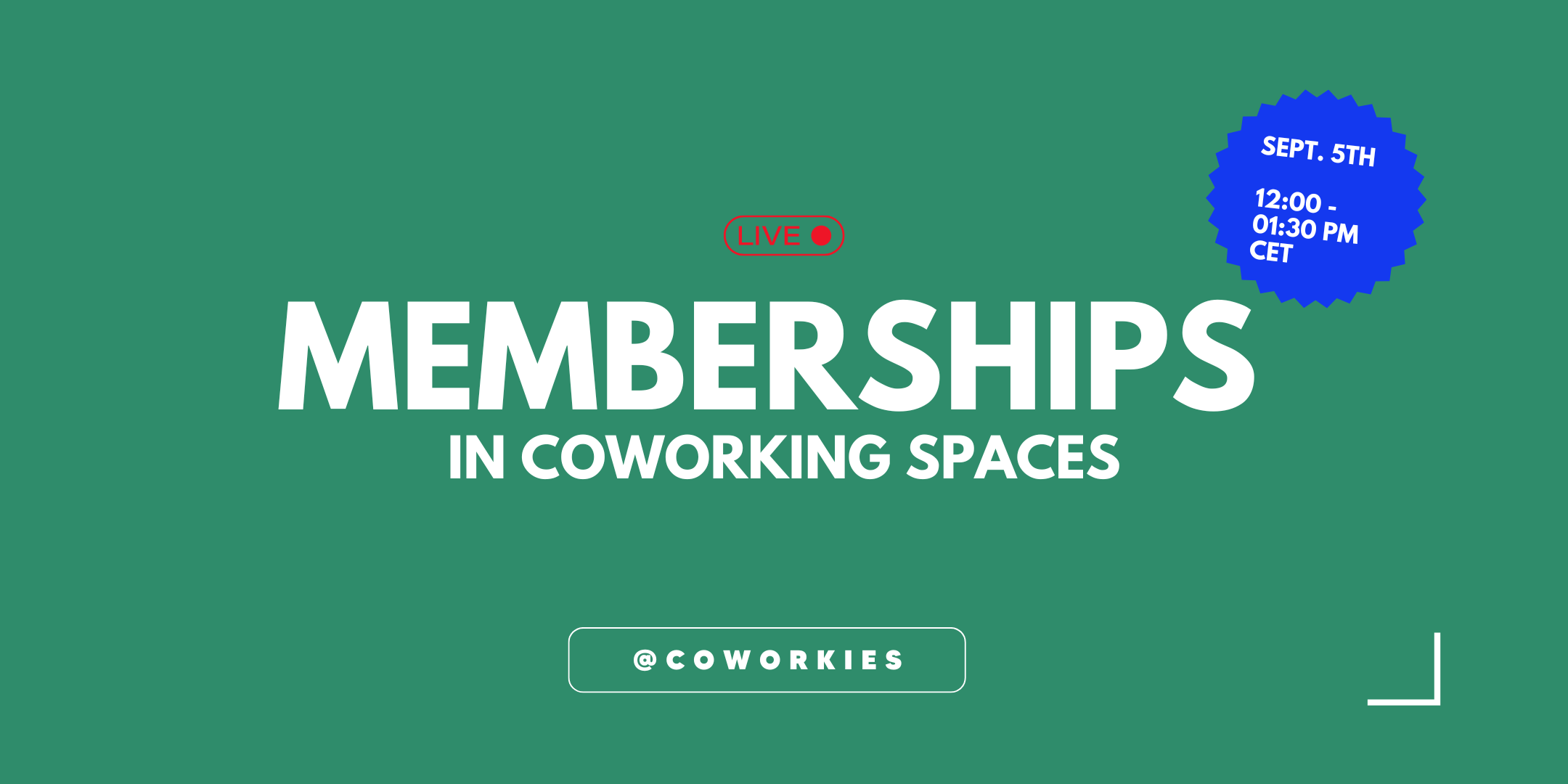
Join our upcoming online event
On September 5th, we'll be exploring everything there is to know about memberships in coworking spaces. Don't miss this opportunity to gain perspective on the topic, book your ticket below
BOOK YOUR TICKET HERE
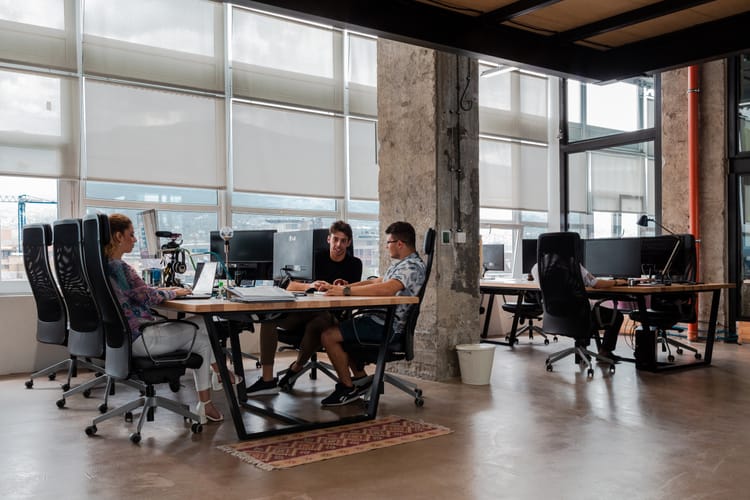
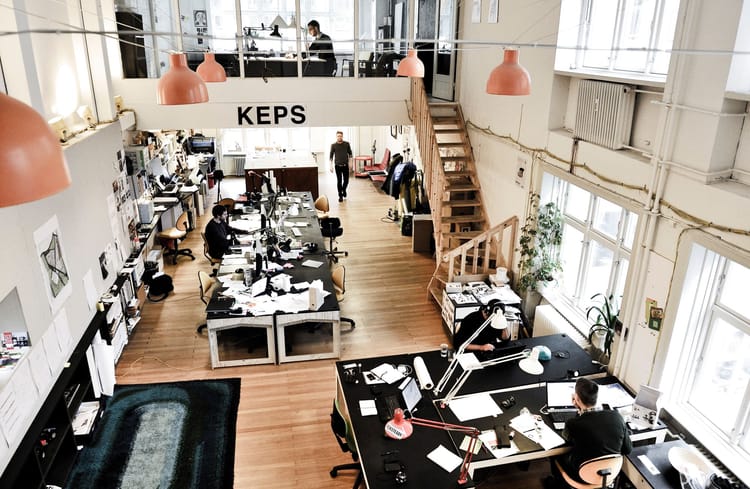
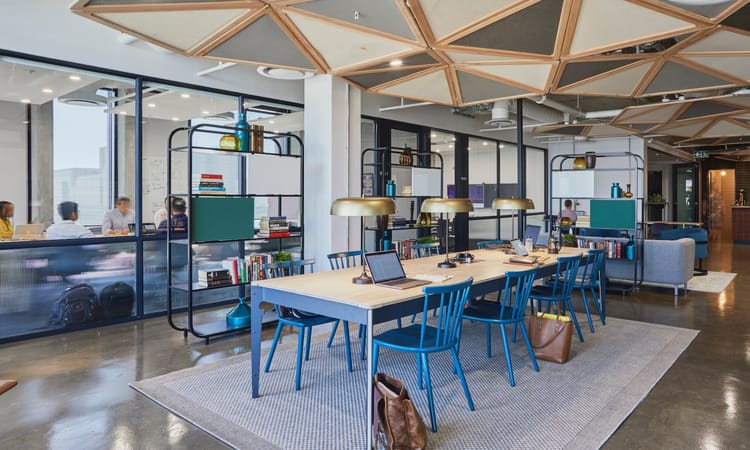
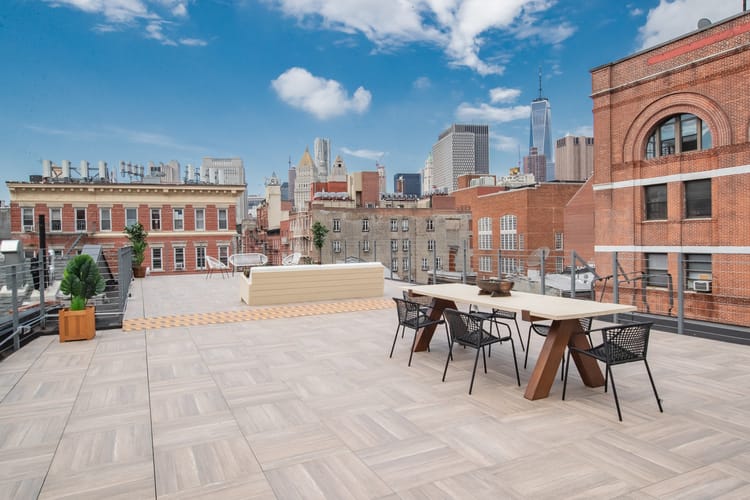
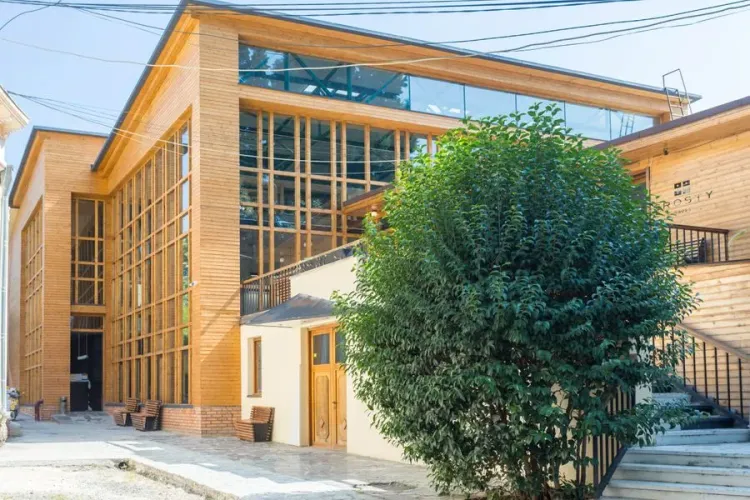
Member discussion